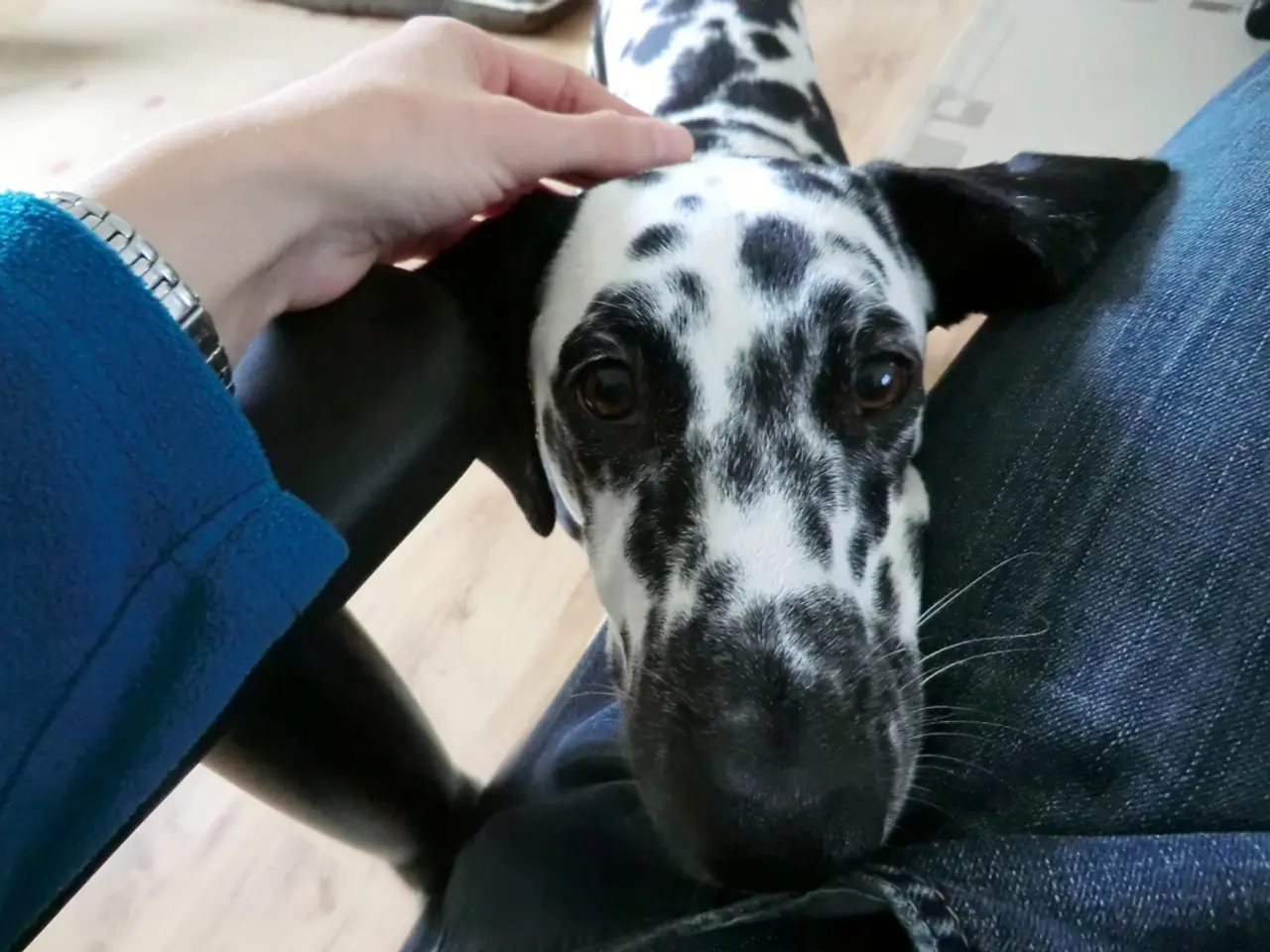Reasons Behind Canine Paw Licking: 9 Causes Identified and Remedy Options Provided
Dogs, like their human counterparts, can sometimes exhibit unusual behaviours. One such behaviour is excessive paw licking, a common concern among pet owners. This article aims to shed light on the causes and treatments of excessive paw licking in dogs.
Excessive paw licking in dogs can be a sign of various underlying issues. Common causes include allergies, infections, injuries, behavioural issues, pain, dermatitis, hormonal imbalances, and anxiety.
Allergies, often caused by pollen, dust, mold, food ingredients, or chemicals, can lead to itching, redness, and inflammation around the paws. Treatment may involve managing allergens, possibly with vet-recommended antihistamines, hypoallergenic diets, or topical therapies.
Infections, whether bacterial or fungal, can thrive in the warm, moist environment between a dog's paw pads, leading to swelling, irritation, and discomfort. Cleaning with medicated wipes or saline and veterinary-prescribed antibiotics or antifungals are common treatments.
Injuries or pain, such as cuts, bruises, foreign bodies like thorns, cracked nails, or arthritis, can cause discomfort leading to licking. Cleaning wounds, preventing licking with cones, and managing pain with veterinary guidance are typical approaches.
Dermatitis, or skin inflammation, can be caused by infections, parasites, food sensitivities, or grooming issues, resulting in itchy, irritated paws. Diagnosis by a vet is important, often followed by targeted treatments like shampoos, antibiotics, or parasite control.
Behavioral causes, such as anxiety, boredom, separation anxiety, and OCD-like behaviours, can drive obsessive licking. Behaviour modification, environmental enrichment, and sometimes medication are useful treatments.
Hormonal imbalances, conditions like hypothyroidism or Cushing’s disease, can affect skin and coat health and indirectly cause licking. Treatment involves managing the hormone disorder with veterinary care.
General treatment recommendations include keeping paws clean and dry, inspecting regularly for injuries, using veterinarian-approved topical remedies, preventing licking to allow healing, and consulting a vet early if licking is chronic or causing sores.
It's essential to remember that treatment for red, excessively licked paws should be sought from a veterinarian rather than using over-the-counter remedies. If a dog has damaged claws or a broken nail, it may be sore, causing them to lick or nibble at the affected foot.
Other potential causes include Demodex and Sarcoptes mites, allergies to certain types of food, harvest mites, arthritic pain, infections like Malassezia (yeast) infections and bacterial infections, and foreign bodies like grass seeds embedded in a dog's paw.
The treatment for excessive paw licking will depend on the findings of the vet, which could include medicated washes, parasite treatments, antibiotics, allergy medications, or a referral to a behaviorist.
In some cases, dogs may lick their paws after scratching their ears because they are analyzing the odor, commonly seen in dogs with ear infections. They may also lick their paws due to parasites such as mites.
Stress, boredom, and anxiety can also cause dogs to lick their paws excessively. It's crucial to provide a stimulating environment, regular exercise, and emotional support to help manage these behaviours.
In conclusion, excessive paw licking in dogs can be a sign of various underlying issues. Early vet diagnosis is crucial for persistent or severe cases to prevent secondary infections and complications. If you notice your dog excessively licking its paws, it's best to consult a vet for a proper diagnosis and treatment.
- Dogs, even like their human counterparts, can exhibit unusual behaviors, such as excessive paw licking, which is a common concern among pet owners.
- Allergies, often caused by food ingredients or chemicals, can lead to itching, redness, and inflammation around the paws, prompting dogs to lick excessively.
- General care recommendations include keeping paws clean and dry, inspecting regularly for injuries, using veterinarian-approved topical remedies, and preventing licking to allow healing.
- Stress, boredom, and anxiety can cause dogs to lick their paws excessively. Providing a stimulating environment, regular exercise, and emotional support can help manage these behaviors.
- Skin-care and health-and-wellness are crucial in preventing and treating excessive paw licking in dogs. Early veterinary diagnosis is essential for persistent or severe cases to prevent secondary infections and complications.




